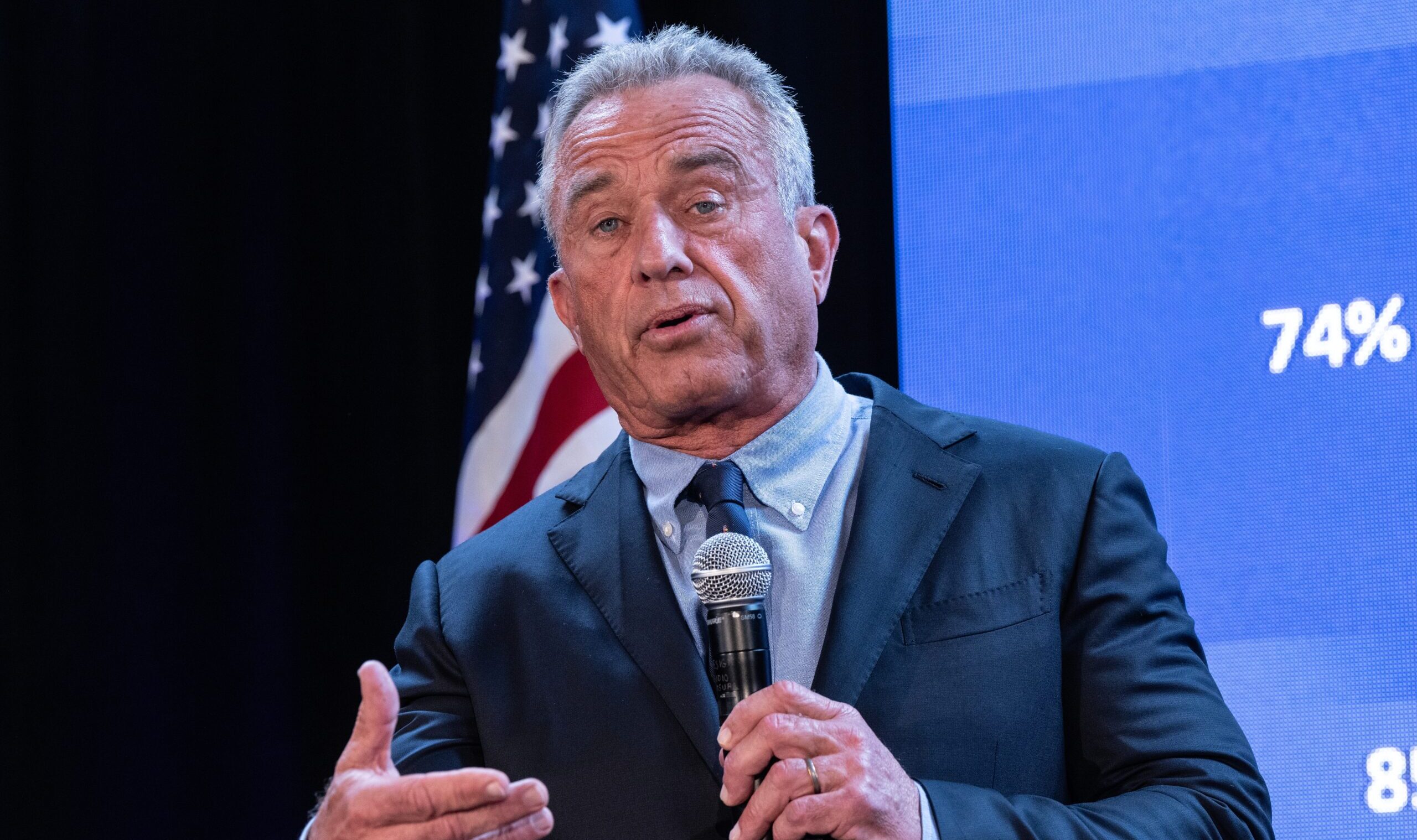
www.theamericanconservative.com
The Burgeoning Fight Between MAHA and the Tech Right
Politics
The Burgeoning Fight Between MAHA and the Tech Right
The big business of medicine is trying to coopt the MAHA moment in the administration.
Credit: image via Shutterstock
President Donald Trump proclaimed victory in 2024 thanks in part due to his success at forging a broad coalition across both the country and political spectrum. Trump’s traditional MAGA base was joined by economic moderates, business opportunists, foreign favor-seekers, and anti-interventionists. Perhaps most notably, the Democrat-turned-independent presidential candidate Robert F. Kennedy’s Make America Healthy Again movement rallied around Trump to help push him over the victory line against Vice President Kamala Harris.
Health-conscious and “expert”-skeptical, the Make America Healthy Again movement, or MAHA for short, was the result of an ideological split in the left-wing, environmentalist green movement.
Once upon a time, activists of the tree-hugging, organic food–purchasing, anti-establishment, hippie variety who had nothing but distrust for Big Pharma and the institutional status quo were widely considered to be as far from the Republican Party as humanly possible.
But in the early 2000s, activists in the green and alternative movement found themselves joined—and soon essentially replaced—by a new breed of suit-and-tie, Trust the Science environmentalist. Epitomized by Al Gore and his documentary An Inconvenient Truth, these new activists were men and women of white coats, bar charts, and peer-reviewed studies with an almost religious devotion to “Science,” “Institutions,” and “The Data.”
When Covid-19 hit in 2020, their mantra “trust the science” quickly morphed into “trust Big Pharma” and “do as you’re told,” and it became apparent that a split with the anti-authoritarian, pharma-skeptics who built the movement was inevitable.
This group (for the most part) rallied around Kennedy’s 2024 presidential campaign, and many of them stood by his side when, in August, Kennedy dropped out of the race to endorse Trump, attaching MAHA to the Republican MAGA coalition. With Trump’s electoral victory, and Kennedy’s elevation to the position of secretary of health, it is clear who won the battle in the end—the Trust the Science faction having been effectively decimated in the backlash which took place against the illogical authoritarianism of the Covid-19 pandemic.
Nevertheless, as old opponents lick their wounds, a new one looms on the horizon—an faction that has wormed its way, and continues to worm its way, into the Trump administration at an alarming rate: the ever-opportunistic tech-right.
Fresh off Trump’s 2024 election victory (which was in part made possible thanks to donations from Silicon Valley allies, including Elon Musk), former adversaries of the America First movement were given passage into the new administration. Musk was appointed head of DOGE, giving him considerable power in government despite the fact this his “department” was officially nothing more than an advisory committee; senior executives from Facebook parent company Meta, OpenAI, and Palantir were appointed lieutenant colonels in the U.S. Army as part of a new detachment specifically formed for Big Tech; and Silicon Valley–backed health startups were also able to take advantage of the new political environment.
Casey Means, an advocate of alternative medicine and the co-founder of the health company Levels, was nominated by Trump to serve as surgeon general after the president withdrew his previous nomination of Janette Nesheiwat. Her brother, Calley Means—a former NeverTrump conservative, lobbyist, and the co-founder of health tech company Truemed—was also made a special government employee.
After Trump announced Casey Means’ nomination in May, praising her “impeccable ‘MAHA’ credentials,” Kennedy’s former running mate Nicole Shanahan publicly criticized the move.
“It’s very strange. Doesn’t make any sense,” said Shanahan, who wrote that there was “something very artificial and aggressive” about the siblings, “almost like they were bred and raised Manchurian assets.”
“I was promised that if I supported RFK Jr. in his Senate confirmation that neither of these siblings would be working under HHS or in an appointment (and that people much more qualified would be),” she continued, before suggesting that somebody seemed to be “controlling” Kennedy’s decisions in the Trump administration.
And it wasn’t just Shanahan who had concerns. The appointment of the Means siblings to positions of power within the Trump administration has sparked an all-out war in the MAHA movement, with several prominent activists raising alarms over their controversial business ties.
“The Means siblings, I maintain, are representing Silicon Valley’s interests, and not ours,” wrote MAHA author and activist Naomi Wolf in an article last month. “I said — and again, I stand by every word — that they both appear to be tasked with representing Big Tech’s interests in the rush to exploit the gold mine that is the pristine, valuable data — especially our private medical data — that is currently held behind secure doors by the United States Government.”
Wolf warned that “the Trump administration was facing a catastrophic security risk,” pointing to Musk’s unprecedented access to data under DOGE and the Trump administration’s already poor track record with cybersecurity, before suggesting that Casey Means had been tasked with “plundering our government data, and of rerouting US health policy, to align with the interests of Big Tech; especially in the booming realm of biometrics.”
The Americans For Health Freedom founder Mary Talley Bowden also raised concerns about “conflicts of interest” within the MAHA movement—and Truemed in particular—while a six-month Vanity Fair investigation accused Calley Means of embellishing his history.
Truemed’s business model takes letters of medical necessity—the sort of things that used to have to be written down with a pen and paper by a doctor—and automates the process. By filling out an online form, it’s possible to write off a huge array of expensive lifestyle products as tax-free health expenses, including indoor saunas, specialty mattresses, and, in the case of Truemed-partnered merchant White Oak Pastures, organic beef testicles.
From Peloton bikes to ergonomic mattresses—items which would usually cost thousands of dollars—Truemed’s website advertises a range of high-end, high-tech products which can now effectively be obtained for free (or at least as a tax write-off subsidized by the taxpayer).
For its part, Truemed maintains they aren’t up to any funny business. Responding to an Associated Press investigation earlier this month, the CEO and co-founder Justin Mares said the company is “in full alignment” with IRS guidelines on tax write-offs.
“Truemed enables patients to work with providers to use medical funds for root cause interventions like exercise and vitamin D to reverse disease under current law,” Mares said.
Undoubtedly there are far worse abuses of taxpayer’s money, including the recently gutted USAID, which spent eye-watering sums on boondoggles such as sex changes in Guatemala, puppet shows in Iraq, and condoms for the Taliban. But it’s easy to see why MAHA enthusiasts aren’t happy about the rewards of their hard-earned victory being seized by well-connected Silicon Valley types.
These tensions between MAHA and the Trump administration’s new Big Tech–aligned stakeholders mirror similar tensions between the populist base and the tech faction in the MAGA movement at large, which is probably one of the reasons why Wolf was invited to make her case against Truemed and Levels on Steve Bannon’s War Room– a show which has become the go-to media launchpad for skeptics of the tech-right in Trump’s coalition.
“I do see that Silicon Valley is gonna kind of align, or has aligned with MAGA and MAHA, not because they share MAGA or MAHA’s policy goals at all, but because they can use those as cover for what they really want,” said Wolf. “Which is our data and a bunch of favorable legislation and policies out of the president and RFK Jr.”
From the pre-inauguration spat over H1B visas, to Musk’s legendary crashout over Trump’s Big Beautiful Bill, a burgeoning MAHA civil war can now be added to the growing list of fault lines between the tech-right and other parts of the MAGA coalition.
Just as the green movement was hijacked by Democratic Party operatives and Net Zero plutocrats in Davos, MAHA once again faces the prospect of having to fight for the spoils of the political victory it helped to create.
The post The Burgeoning Fight Between MAHA and the Tech Right appeared first on The American Conservative.















